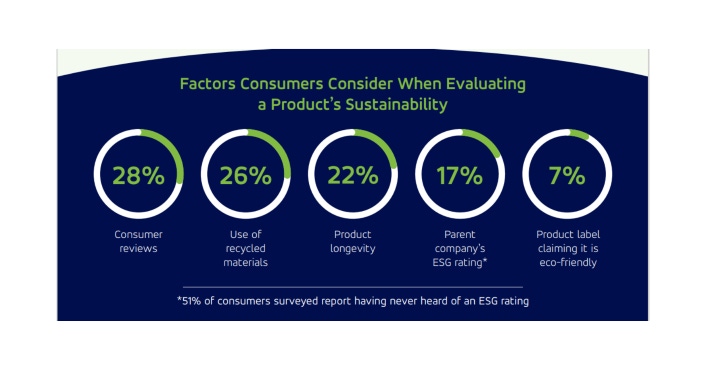These Are the Products That Shoppers Will Pay a Sustainability Premium ForThese Are the Products That Shoppers Will Pay a Sustainability Premium For
Most consumers say they're willing to pay more for cleaned-up cleaning products. More than 4 in 10 consumers polled by digital supply-chain specialist Blue Yonder said their interest in shopping sustainably has increased since the start of the pandemic.

Consumers are expressing growing interest in seeking out sustainably sourced and sustainably packaged items after spending a lot more time at home the past two years (and seeing all of the waste they generate daily)—but just where are they willing to pay extra for more sustainable options?
An online survey of more than 1,000 U.S. consumers from digital supply-chain and omnichannel fulfillment specialist Blue Yonder sought to answer that question. Across five product categories, cleaning products ranked as the top item for which consumers said they'd pay a premium for a more sustainably made choice.
Sixty-four percent of respondents said they would be likely/most likely to spend more on household cleaning products that had been manufactured sustainably. Just more than half (52%) said they'd likely pay more for sustainably manufactured apparel. Beauty products came in at No. 3 (45%), with smaller shares saying they likely would be willing to pay more for sustainably made furniture (21%) or appliances/white goods (18%).
Consumers also indicated they're willing to spend more for sustainable packaging: More than 60% said they would spend extra on items featuring sustainable packaging, with 44% saying they'd be willing to spend up to 5% more. A large majority, too (81%), said they recycle boxes/bags from in-store and online shopping at least half of the time.
"As retail emerges from pandemic-era practices, sustainability is back in focus," said Edward Wong, SVP and global retail sector leader for Blue Yonder, in a news release. "The findings of this study reflect the paradigm shift toward a more environmentally friendly supply chain as consumers are now willing to do their part to embrace more sustainable shopping habits."
Additional findings from Blue Yonder's survey:
44% of respondents said their interest in shopping sustainably has increased since the start of the COVID-19 pandemic.
86% of consumers said they would be willing to delay e-commerce deliveries for sustainability's sake if given an incentive to do so, with 29% said they would accept a delay of up to five days.
More than half of consumers (52%) said their sustainable shopping frequency was influenced by social-media posts they see. Overall, for those who cited social media as an influence on their sustainability-oriented product choices, Facebook and Instagram had the largest influence. For those ages 18 to 29, TikTok was a primary influencer.
About the Author
You May Also Like






